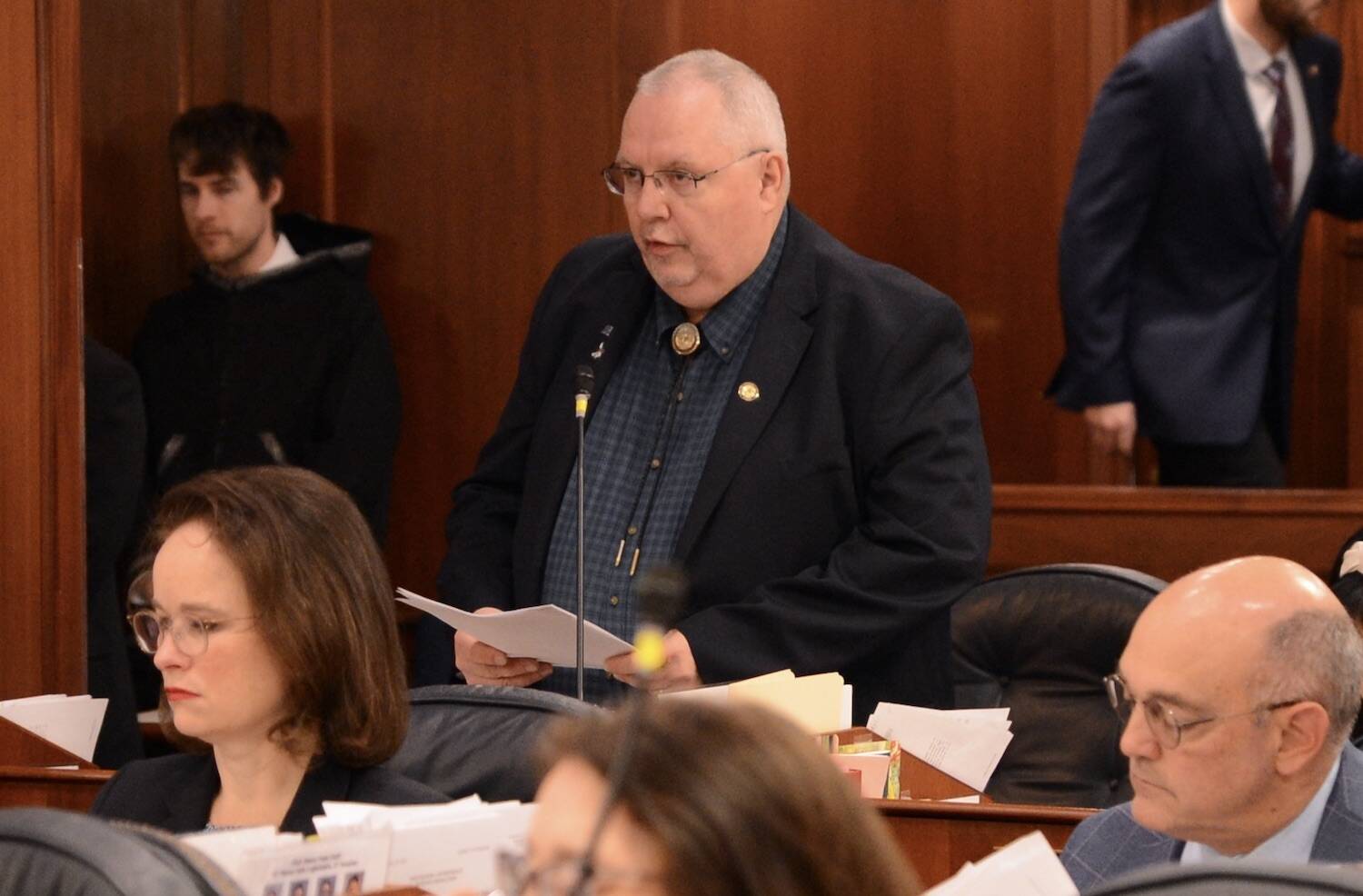The Alaska House of Representatives voted on Friday to relax environmental rules on advanced recycling facilities that use high heat or chemicals to turn plastic garbage into raw materials for new plastic products.
The 23-13 vote sends House Bill 143 to the Alaska Senate for further consideration.
Rep. Tom McKay, R-Anchorage and the bill’s prime sponsor, said the bill would keep plastic out of state landfills.
“Advanced recycling is the key to ending plastic waste and keeping plastic out of the environment,” McKay said.
The legislation was supported by the American Chemistry Council, a trade group representing plastics manufacturers. Fewer than 10% of plastic products worldwide are recycled into new products, and advanced facilities are intended to increase that proportion, but environmentalists are concerned about the byproducts of advanced recycling — chemical pollution, greenhouse gas emissions and leftover waste.
For the moment, those issues are hypothetical: Alaska doesn’t have any advanced recycling plants, and none are being publicly planned.
Rep. Will Stapp, R-Fairbanks, said the end result of the bill is to “reduce some regulatory framework on facilities we don’t have.”
“Even if this bill passes today … we may never get one of these facilities in the state,” he said.
By March 2023, 22 other states had enacted council-backed legislation on advanced recycling centers, the Alaska Chamber of Commerce said in a letter supporting the bill.
Virginia passed an advanced recycling bill in 2021 as part of a compromise that saw environmentalists successfully ban foam food containers. Missouri passed an advanced recycling bill in 2022, and Indiana became the 24th state to pass a council-backed bill when it did so last year.
Some legislators, including Rep. Donna Mears, D-Anchorage, were skeptical of supporters’ claims.
“This bill might be good for the American Chemistry Council, but it’s bad for Alaska,” she said.
Mears, an environmental engineer when working outside the Legislature, served for years in Anchorage as an expert on recycling.
Before the bill’s final passage, she unsuccessfully attempted to amend it, and when those amendments failed, urged legislators to vote against it. She noted that the bill will classify advanced recycling plants as manufacturers, not waste facilities, meaning that they will be subject to lower environmental standards.
Last week, Maine voted to move in the opposite direction of Alaska’s bill when legislators there decided to regulate advanced recycling facilities under the same rules as solid waste. Those facilities will also be required to post a bond to pay for any long-term cleanup costs.
Rep. Genevieve Mina, D-Anchorage and another opponent, said advanced recycling facilities use “a massive amount of energy,” and that amid an energy crunch in Southcentral Alaska, “there’s a lot of smarter policies that we could pursue.”
The final vote was largely along caucus lines, with 22 members of the House Majority voting in favor, plus Rep. Dan Ortiz, I-Ketchikan, a member of the minority caucus. Voting against the bill were 12 members of the House Minority and Rep. David Eastman, R-Wasilla, who is not a member of a caucus.
Reps. Jennie Armstrong, D-Anchorage, and Laddie Shaw, R-Anchorage, were excused and did not vote. Reps. Alyse Galvin, I-Anchorage, and Sara Hannan, D-Juneau, were absent.
• James Brooks is a longtime Alaska reporter, having previously worked at the Anchorage Daily News, Juneau Empire, Kodiak Mirror and Fairbanks Daily News-Miner. This article originally appeared online at alaskabeacon.com. Alaska Beacon, an affiliate of States Newsroom, is an independent, nonpartisan news organization focused on connecting Alaskans to their state government.

